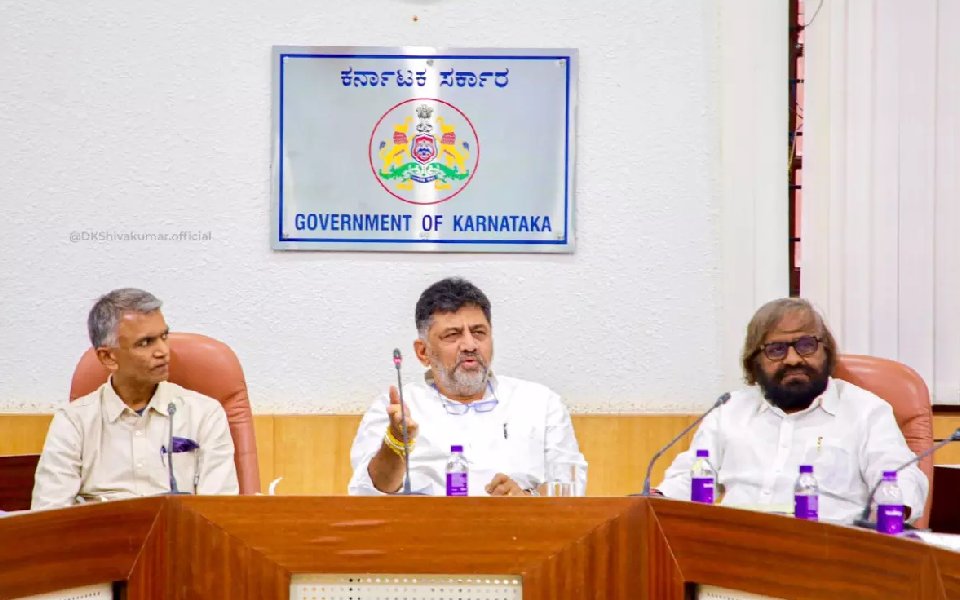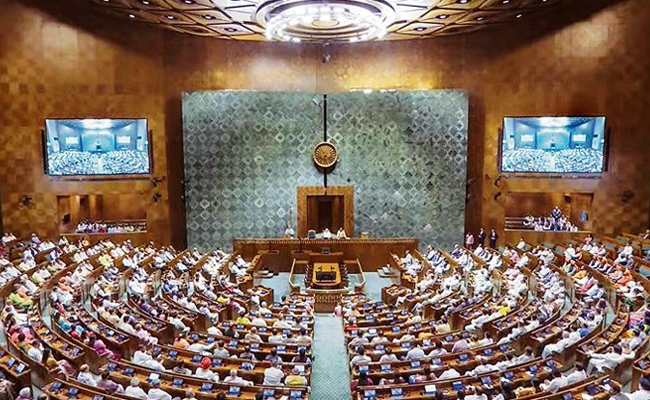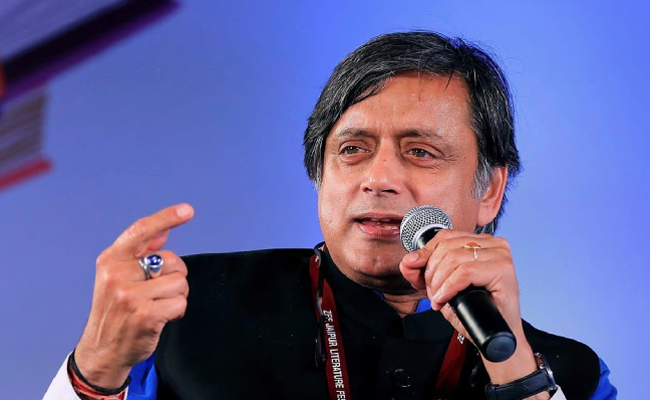Bengaluru, Jun 13: Karnataka Deputy Chief Minister D K Shivakumar on Thursday said the state Forest department has agreed to hand over 500 acres of land, which is crucial for the implementation of Yettinahole drinking water project.
He said this after a meeting with Revenue Minister Krishna Byre Gowda and Forest Minister Eshwar Khandre at Vikasa Soudha here.
“The Forest department has handed over 500 acres of forest land for the project. In return, the Revenue department has agreed to handover equal area of revenue land to the Forest department. The process will be completed soon,” Shivakumar, who is also the Water Resources Minister said.
The meeting, which was also attended by officials and T B Jayachandra, Karnataka government’s Special Representative in Delhi, discussed the progress of Yettinahole and Upper Bhadra projects.
ALSO READ: Karnataka cabinet approves holding of global investors meet next year
The Yettinahole project is aimed at providing drinking water to parts of Kolar, Chikkaballapur, Tumakuru, Ramanagara and Bengaluru Urban districts by drawing 24 tmcft of water from the Yettinahole river in Sakleshpur taluk of Hassan district.
Noting that officials have identified challenges facing the projects and discussions were held regarding solutions in the meeting, Shivakumar said, “there were bottlenecks at 20 different places over a stretch of 260 km pertaining to forest land. We conducted a joint survey involving the Forest department and Revenue departments and the issue is now resolved. The work will start soon.”
A compensation of Rs 51 crore needs to be given to farmers in some places, of which Rs 10 crore has already been released, he said.
There are differences between the Forest and Revenue department over the compensation and this will be discussed in the Cabinet meeting.
“The balancing reservoir in Doddaballapura taluk is pending and preparations are on to start the work. In the first phase, water will be pumped to a distance of 48 km by next month. A technical committee has been formed to explore using water which is currently flowing into the sea,” he added.
Let the Truth be known. If you read VB and like VB, please be a VB Supporter and Help us deliver the Truth to one and all.
New Delhi (PTI): A Bill which seeks to set up a single regulator for institutions of higher education is required to facilitate universities and other higher educational institutes become independent and self-governing, officials said.
The Bill is likely to be introduced in Parliament next week after it got the Union Cabinet's nod on Friday.
The proposed legislation, which was earlier christened the Higher Education Commission of India (HECI) Bill, has now been named Viksit Bharat Shiksha Adhikshan Bill.
A single higher education regulator, which was proposed in the new National Education Policy (NEP), looks to replace the University Grants Commission (UGC), the All India Council for Technical Education (AICTE), and the National Council for Teacher Education (NCTE).
"The Bill proposes to set up a Higher Education Commission of India to facilitate universities and other higher educational institutes become independent and self-governing institutions and to promote excellence through a robust and transparent system of accreditation and autonomy. It is likely to be introduced (in Parliament) in the coming week," an official said.
While the UGC presently oversees non-technical higher education in the country, the AICTE oversees technical education, while the NCTE is the regulatory body for teachers' education.
The Commission is proposed to be set up as a single higher education regulator, but medical and law colleges will not be brought under its ambit.
It is proposed to have three major roles -- regulation, accreditation and setting professional standards, officials said.
Funding, which is seen as the fourth vertical, is not proposed to be under the regulator so far. The autonomy for funding is proposed to be with the administrative ministry, they said.





